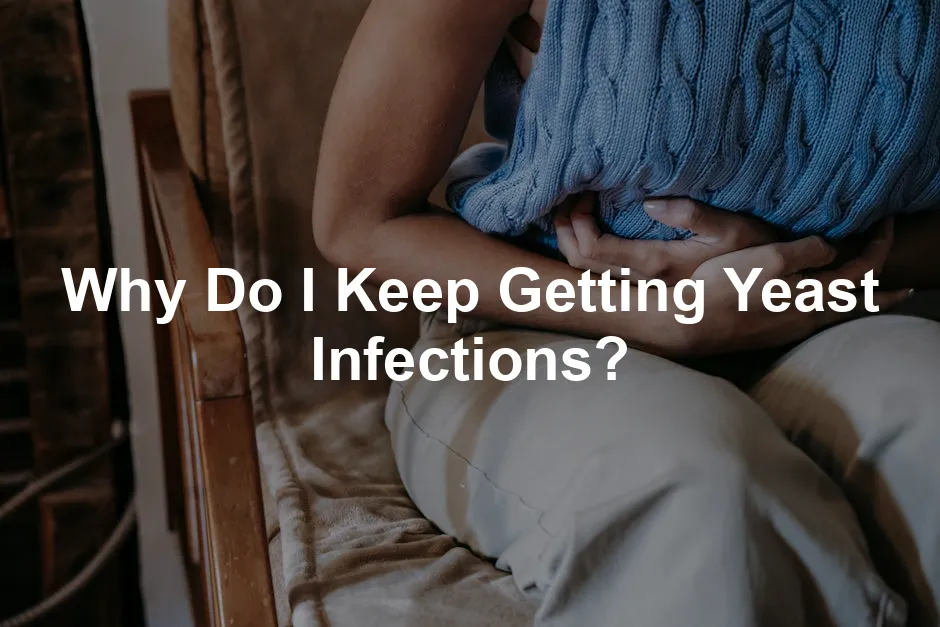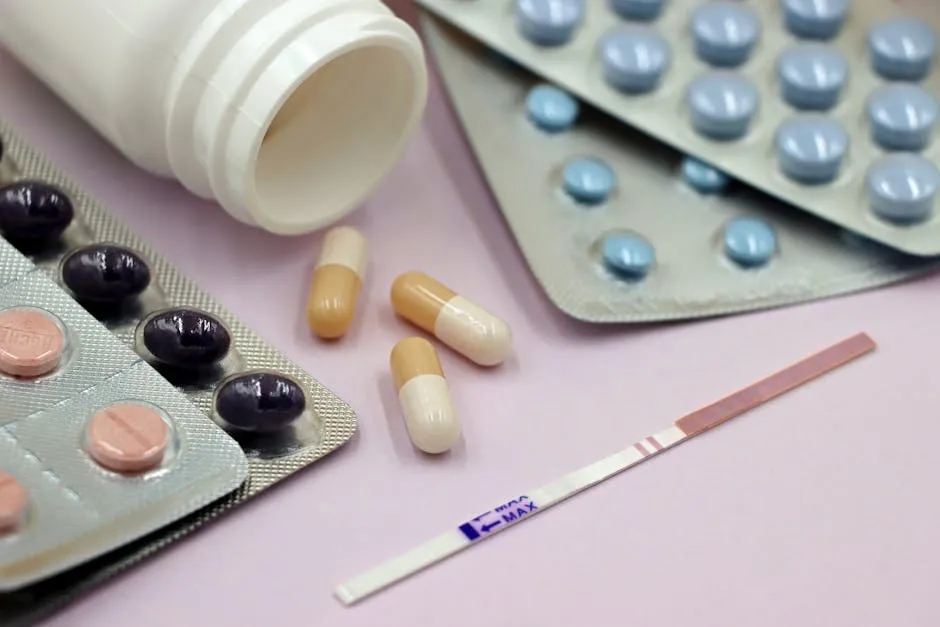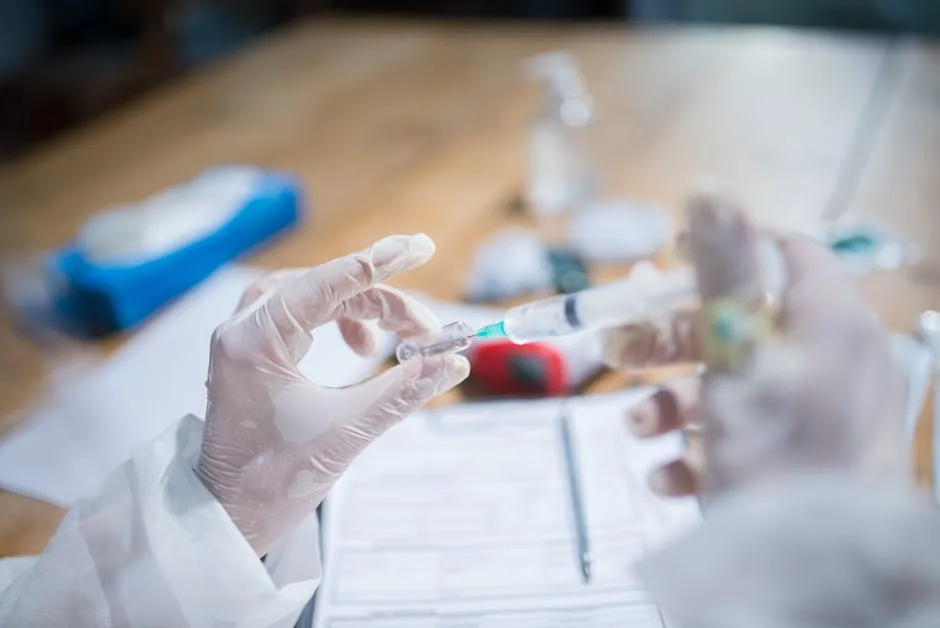
Why Do I Keep Getting Yeast Infections?
Why Do I Keep Getting Yeast Infections?
Introduction
Yeast infections are common among women. They can be frustrating, especially when they keep coming back. Understanding the reasons behind these recurring infections is essential. In this post, we’ll examine the causes, treatments, and preventive measures for frequent yeast infections.
To support your vaginal health, consider adding Probiotic Supplements to your daily routine. They can help restore the natural balance of bacteria in your body and reduce the risk of yeast infections.
Summary and Overview
Yeast infections, particularly recurrent cases, affect many women. Research shows that up to 75% of women will experience at least one yeast infection in their lifetime. Out of those, about 8% may have recurrent infections, defined as four or more within a year. Addressing the underlying causes is critical for effective management. This article will cover what yeast infections are, their symptoms, and the factors contributing to recurrence.
Understanding Yeast Infections
What is a Yeast Infection?
A yeast infection is a fungal infection caused mainly by Candida albicans. This fungus normally lives in small amounts in the vagina, alongside bacteria that help keep it in check. When the balance between yeast and bacteria shifts, yeast can overgrow, leading to an infection. Approximately 3 out of 4 women will experience a yeast infection at some point in their lives, making it a widespread issue. Understanding this balance is crucial for maintaining vaginal health.
Symptoms of Yeast Infections
Yeast infections can cause various uncomfortable symptoms. Common signs include intense itching and burning sensations in the vaginal area. You might also notice a thick, white discharge resembling cottage cheese. This discharge typically doesn’t have a strong odor.
Different types of yeast infections can present unique symptoms. For instance, oral thrush, another type caused by Candida, leads to white patches in the mouth and may cause discomfort while eating or swallowing.
It’s essential to know when to seek medical help. If this is your first yeast infection or if symptoms persist despite treatment, consult a healthcare provider. If you experience severe symptoms or if infections recur frequently, professional evaluation is crucial for proper diagnosis and treatment.

Factors Contributing to Recurrence
Hormonal Changes
Hormonal fluctuations can significantly affect yeast levels in your body. For example, changes during your menstrual cycle, pregnancy, or while using hormonal birth control can create an environment where yeast thrives. Research shows that women often report increased yeast infections during these times.
One study suggests that high estrogen levels can encourage Candida overgrowth. This imbalance can lead to recurrent infections. Thus, understanding how hormonal changes impact your body is vital for managing yeast infections effectively.

Antibiotic Use
Antibiotics are essential for treating bacterial infections, but they can disrupt your vaginal flora. When you take antibiotics, beneficial bacteria can be reduced, allowing yeast to grow unchecked. This imbalance can lead to yeast infections.
Certain antibiotics, especially broad-spectrum ones, are more likely to cause this issue. If you find yourself needing antibiotics frequently, discuss preventive measures with your healthcare provider. They may suggest probiotics to help restore the natural balance in your vagina.

Diabetes and Blood Sugar Levels
Uncontrolled diabetes can make you more susceptible to yeast infections. High blood sugar levels create an environment that promotes yeast growth. The Candida fungus thrives on sugar, so when your blood sugar is high, it can lead to frequent infections.
Data indicates that women with poorly managed diabetes experience yeast infections more often. Keeping your blood sugar levels stable is crucial not just for your overall health, but also for reducing the risk of these infections. Regular check-ups and effective diabetes management strategies can help keep yeast infections at bay.

Lifestyle and Environmental Factors
Your daily habits can significantly influence yeast infection recurrence. Wearing tight clothing, especially synthetic fabrics, creates a warm, moist environment where yeast thrives. Think about those snug yoga pants or wet swimsuits—these conditions are perfect for yeast to multiply.
Moisture is another enemy. Staying in damp clothes can promote yeast growth, so it’s wise to change out of wet garments as soon as possible. Opt for breathable cotton underwear to help keep the area dry and comfortable.
Diet plays a role too. Consuming high-sugar foods can feed yeast, leading to an overgrowth. Sugars in your diet can boost yeast levels, making it crucial to monitor your intake. Alongside this, maintaining good hygiene practices helps. Regular washing with mild soap can prevent the buildup of sweat and moisture, reducing the risk of infections.

Other Medical Conditions
Certain medical conditions can increase your chances of recurring yeast infections. A weakened immune system, such as that seen in individuals with HIV or diabetes, can make it harder for your body to keep yeast growth in check. If you have an autoimmune disorder or are undergoing treatments like chemotherapy, you might be more susceptible as well.
Additionally, some medications can impact your body’s natural defenses. If you suspect an underlying health issue, consult a healthcare provider. They can help identify any contributing factors and recommend appropriate treatments. Understanding these connections is essential for effective management and prevention of recurrent infections.

Lifestyle Modifications for Prevention
To help prevent recurrent yeast infections, consider making some lifestyle changes. Start by wearing breathable fabrics. Opt for cotton underwear and loose-fitting clothing. This allows air circulation, reducing moisture buildup.
Managing stress is also crucial. High stress can weaken your immune system, making you more susceptible to infections. Engage in relaxation techniques like yoga or meditation to keep stress levels in check.
Diet plays a significant role too. Limit your intake of sugary foods, as yeast thrives on sugar. Instead, focus on a balanced diet rich in whole foods. Incorporating probiotics can also be beneficial. Foods like yogurt or supplements can support healthy vaginal flora.
By adopting these changes, you may lower your risk of frequent yeast infections and promote overall wellness.

Conclusion
In summary, recurrent yeast infections can be frustrating and uncomfortable. Key factors include hormonal changes, antibiotic use, and lifestyle habits. Women experiencing frequent infections should consult healthcare providers for personalized strategies. Taking proactive steps in prevention and treatment can significantly improve your quality of life. Don’t hesitate to seek help and explore tailored approaches to manage and prevent these infections effectively.

Are yeast infections contagious?
Yeast infections are not classified as sexually transmitted infections (STIs). However, they can be passed between sexual partners through intimate contact. If one partner has an infection, it’s possible for the other to experience symptoms too. Using protection, such as condoms, can help reduce this risk. If you or your partner frequently experience yeast infections, consider discussing it with your healthcare provider for guidance.

When should I see a doctor for a yeast infection?
You should consult a healthcare provider if this is your first yeast infection or if your symptoms don’t improve after using over-the-counter treatments. If you notice severe symptoms, such as intense itching or swelling, a doctor’s evaluation is vital. Additionally, if you experience recurrent infections, defined as four or more in a year, it’s essential to seek professional advice. Persistent issues may indicate an underlying condition that needs addressing.

Can diet affect yeast infections?
Yes, your diet can impact the frequency of yeast infections. Foods high in sugar can feed the Candida fungus, promoting overgrowth. This is why reducing sugar intake is crucial. Additionally, incorporating herbal immune support capsules into your diet may help maintain a healthy balance of bacteria in your body. Balancing your diet can play a significant role in preventing recurrent infections.

Please let us know what you think about our content by leaving a comment down below!
Thank you for reading till here 🙂
All images from Pexels




